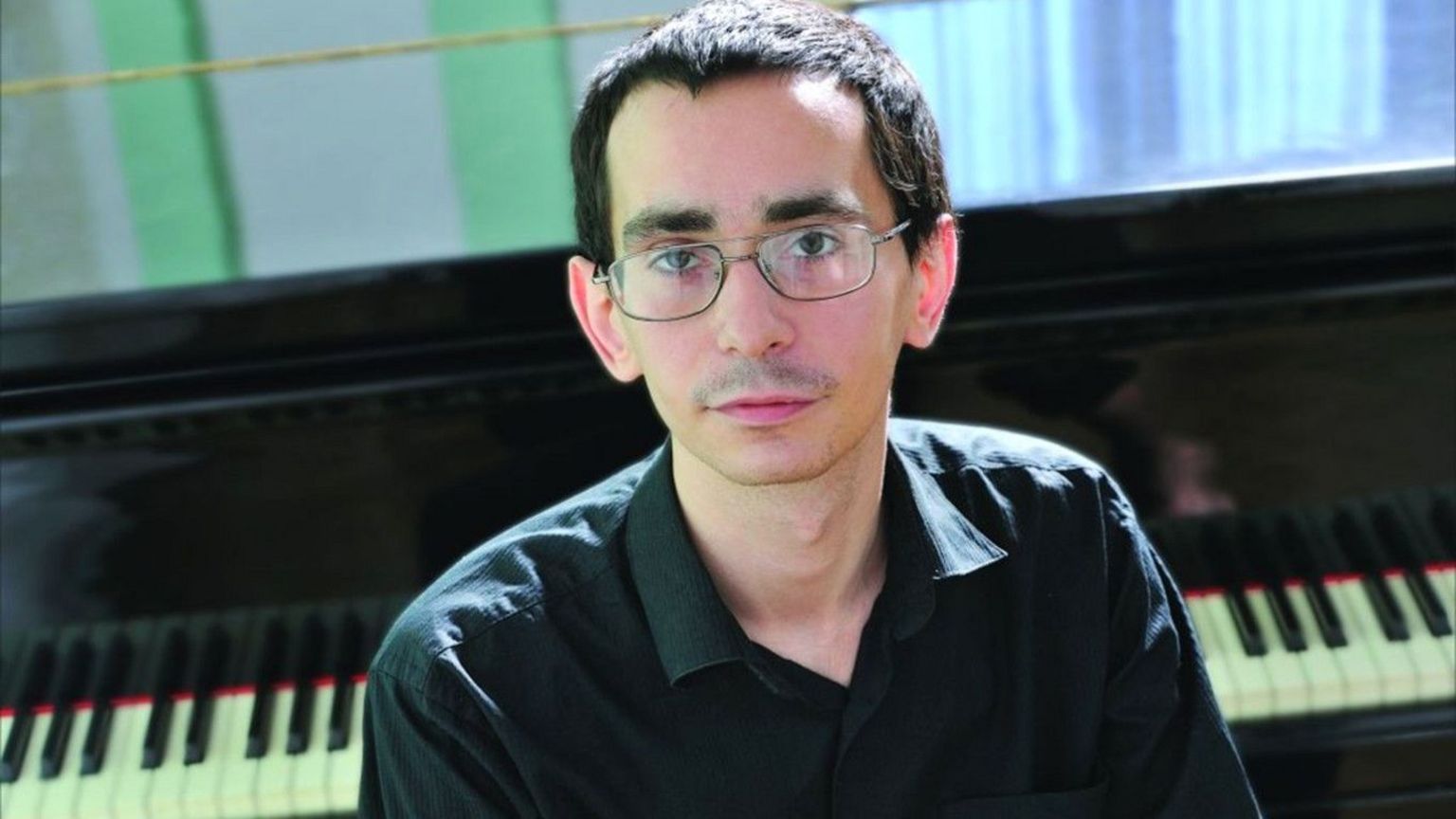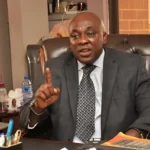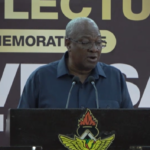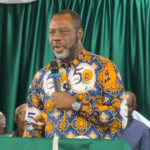The lonely death of a jailed Russian pianist who opposed war

Elizaveta Fokht
BBC News Russian
While the US and Russia were busy finalising the biggest exchange of prisoners since the Cold War, a gifted but little-known Russian pianist was dying in silence in jail.
Pavel Kushnir had protested repeatedly against Russia’s invasion of Ukraine, and began a hunger strike soon after his arrest in May, later refusing water too.
He died, slowly and without publicity, on 28 July – four days before a group of better-known dissidents were swapped for Kremlin spies, sleeper agents and killers imprisoned in the West.
After his lonely death, at a pre-trial detention centre in Birobidzhan in Russia’s Far East, the 39-year-old was mourned by only 11 people at his cremation.
Svetlana Kaverzina, an independent politician in Siberia, said no-one had tried to talk him out of sacrificing himself because they hadn’t been aware what was happening.
“We couldn’t chip in and send him a lawyer – we didn’t know,” she wrote on the Telegram messaging app. “He was alone.”
Pavel Kushnir plays Rachmaninov’s Prelude in C-sharp minor, Op 3 No 2 at a festival in his home town of Tambov in 2010. Source: his late father Mikhail Kushnir’s YouTube channel, youtube.com/@SuperLiahim, external
‘Foreign agent Mulder’
The YouTube channel where Kushnir published four anti-war videos had only five subscribers when he was arrested.
His “Foreign Agent Mulder” posts were a reference to a character in the US TV series, the X Files, which was popular in Russia in the 1990s, and also to a Russian law that allows people considered politically suspect to be declared “foreign agents”. In one clip Kushnir even appears with a hand-drawn FBI badge.
His final film, released in January, addressed the 2022 massacre of civilians by Russian troops in Bucha, a suburb of Kyiv.
A few months later, a Telegram channel close to the secret services, Operational Reports, posted a video showing masked men leading Kushnir into a white minivan.
It added that a criminal case had been opened, accusing him of making a public call to engage in terrorist activity, which is punishable by up to seven years in jail.
Nothing more was heard until 2 August, when the human rights activist Olga Romanova and the pianist’s friend, Olga Shkrygunova, revealed his death in an article published by online news organisation Vot Tak.
His 79-year-old mother, Irina Levina, later confirmed her son had died.
Image source, Anon
A friend described Kushnir as a cog that did not fit any machine
Kushnir was born in Tambov, central Russia, where his father Mikhail was a pianist and educator, and his mother a music school teacher.
He started playing piano at the age of two and, at just 17, gave a remarkable two-and-a-half-hour concert featuring the 24 preludes and fugues by composer Dmitri Shostakovich.
Later that year, he was admitted to the Moscow Conservatory, where classmate Julia Wertman says he cultivated a “dissident image”, often wearing a shabby coat and black clothes, with a half-litre bottle of vodka sticking out of a pocket.
Asked in a 2005 interview what composition he would never perform, he replied: “The Russian national anthem.”
After graduation, Shkrygunova says Kushnir deliberately took jobs in smaller cities, believing he would have more musical and personal freedom outside Moscow.
He moved to Yekaterinburg, then Kursk, and spent three years in Kurgan, a city to the east of the Ural mountains, before he lost his job at the philharmonic orchestra there in 2022.
Shkrygunova does not know exactly why he was dismissed, but adds: “This was a cog that didn’t fit any machine, and it had been that way since his childhood.”
After four months without a job, he became a soloist with the Birobidzhan Philharmonic, telling local television: “If I’m not imprisoned, drafted into the army, or fired, then I hope to spend the next 12 years with you.”
‘I’m doing this for a reason’
Kushnir spent his free time protesting against the war.
In emails to friends he described sticking posters around Birobidzhan at night, with slogans angrily denouncing the draft, and describing Vladimir Putin as a fascist.
He also began staging hunger strikes: first for 20 days in the spring of 2023, then for three months later that year.
Shkrygunova says Kushnir knew the danger he was putting himself in.
“It was his solitary protest,” she says. “An act by someone who didn’t know what else he could do.”
She tried to convince him to leave Russia, or at least to perform in Berlin, where she now lives. But they never managed to arrange the trip.
In late March, Kushnir spoke to Shkrygunova for the last time, telling her he felt like he was being watched and that he “kept seeing the same person”.
“Whatever happens, happens: I’m doing this for a reason,” he added.
Image source, Operational Reports/Telegram
Pavel Kushnir was shown being led away by masked men
‘Like a skeleton’
Birobidzhan City Court records contain no information about a criminal case against him, though there is a record of a non-criminal case of “petty hooliganism” submitted on 20 June.
On 19 July, Kushnir was fined an unknown amount, but it is unclear whether he attended the hearing.
The court then sent him a copy of the verdict, but it was returned on 30 July with the note “not possible to deliver”.
By then, of course, Kushnir was already dead.
The independent news site, Mediazona, spoke to someone who saw him shortly before he died.
They described him as “like a skeleton”, who by mid-July could barely walk and was “in very poor condition”.
The official cause of death was “dilated cardiomyopathy and congestive heart failure”.
The FSB and the Birobidzhan Court did not respond to the BBC’s request for comment. The regional head of Russia’s prison service, Vasily Mikhaylenko, told Mediazona he knew nothing about the case.
‘Gentle and funny’
After Kushnir’s death, his mother told another independent news organisation, Okno, that she had tried and failed to influence her son.
“I certainly wanted him to conduct himself in a quieter way and stay out of politics altogether.
“I am very sorry that he gave up his life, apparently for nothing at all.”
Grace Chatto of electronic music group Clean Bandit said her friend Pavel Kushnir had always stood for truth and freedom
But Shkrygunova disagrees, saying that Kushnir knew all along that he was risking his life so that he could express his anti-war views.
“He understood there might have been another way,” Shkrygunova adds.
“But by the time he had realised it, there was no turning back. He knew he was going to go all the way – so it wouldn’t turn out to be a wasted effort.”
In death, Kushnir has attracted more attention than he ever received in his lifetime.
A book he wrote in 2014 has quickly been republished in Germany.
Grace Chatto, a member of Grammy-award-winning electronic music group Clean Bandit who studied with Kushnir at the Moscow Conservatory, wrote an emotional tribute on Instagram to her “gentle and funny” friend.
And 22 leading classical musicians including Daniel Barenboim, Sir Simon Rattle and Martha Argerich wrote an open letter to remember a “remarkable artist” they had never met.
Although Kushnir’s YouTube channel had single-figure subscribers in his lifetime, his most popular clip has now been viewed more than 22,000 times.
















